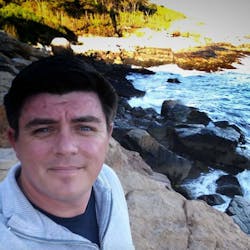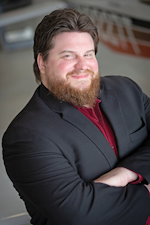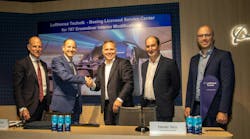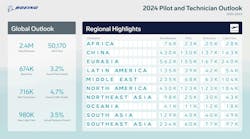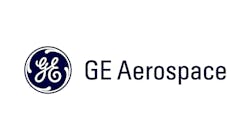Nathan Rich was once a farmer in central Wisconsin, after spending his early childhood in Gloucester, Massachusetts.
“I vividly remember stopping my tractor in the middle of nowhere to adjust the plow I was hauling when I heard a rumble from above. Just as I turned to look, two F-16s in close formation appeared from above the trees and banked hard left less than 1,000 feet above me. They were pulling hard enough to form visible vortices on their wing tips and were close enough that I could see the crew in each aircraft. They rolled right, pitched up, showed me their afterburners and climbed out of sight. No one else was around for miles. I was 16. I decided then that I would move back to Gloucester to pursue a career in aviation,” Rich recounts.
While at Embry-Riddle, Rich participated in projects at the Embry-Riddle Eagle Flight Research Center, working on many experimental process projects and flight testing projects.
Rich started his career as a line service technician and is now as the director of maintenance for Exec Aero.
Along the way, he worked in many different aspects of general aviation in a hangar setting, on the road supporting areal mapping operations, flight training maintenance, Part 135 aircraft maintenance, Part 145 director of maintenance and accountable manager positions.
He says he enjoys learning something new every day.
While working at Sky Warrior in Pensacola, Florida, Rich was integral to the process of fleet standardization to support the school’s military flight training contracts. He was a part of this process from concept to operational status.
“I love that this industry thrives on the requirement and ability of its professionals to constantly re-examine what they 'think' they know,” he said. “The demand of perfection placed upon my colleagues and I. Through that perfection, our society has accomplished incredible feats with regard to aviation. We can now do something that people have only dreamt of for thousands of years. I find this fascinating.”
For the future of the aviation, Rich said he would like there to be more opportunities given for people to join the industry in some fashion.
“I would like to see more young and socioeconomically diverse people have the opportunity to begin a career in all disciplines of aviation. I would also like to see more startup manufacturers succeed in introducing new, innovative aircraft designs that average people can afford to buy or rent,” he said.
